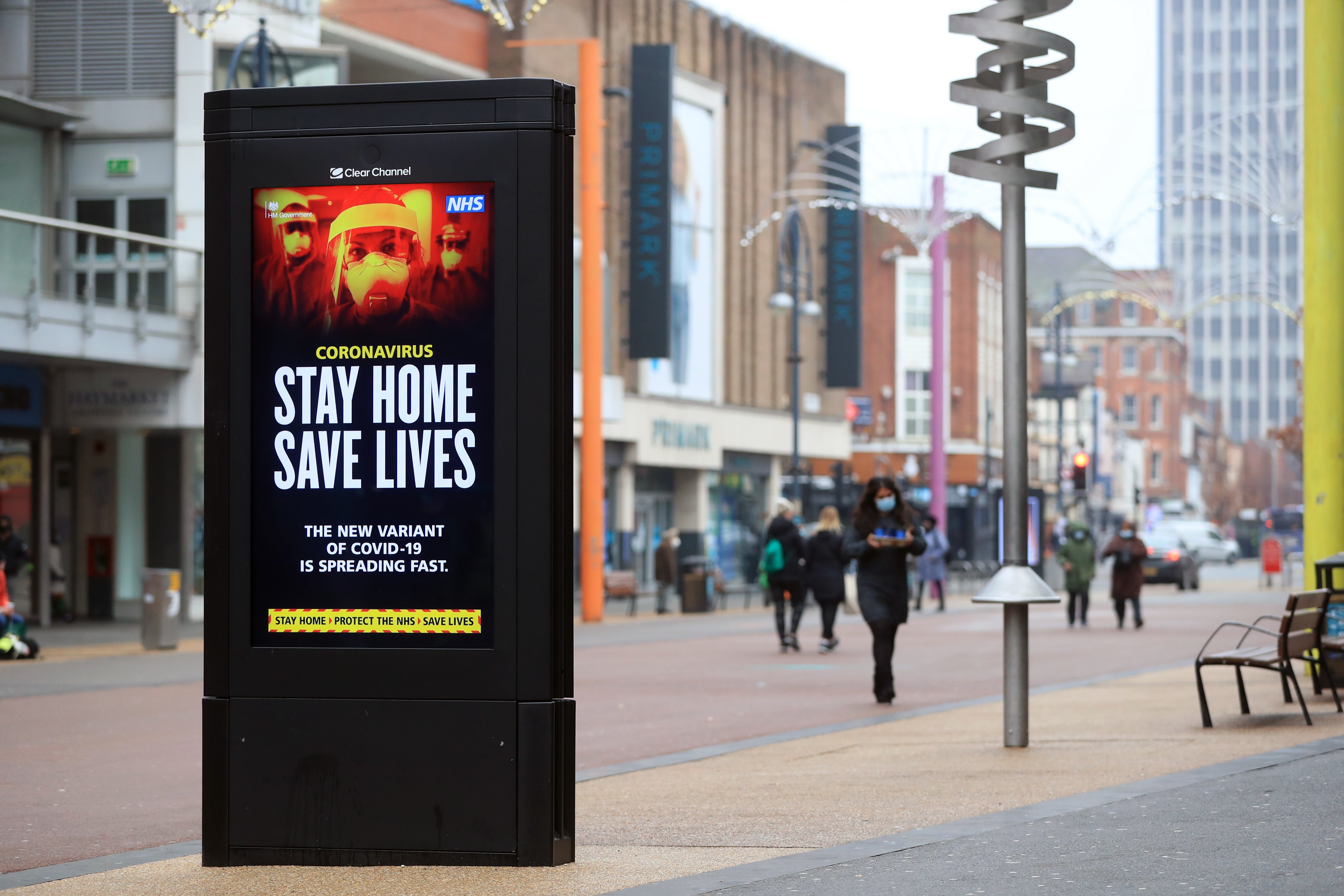Inside Politics: Covid response ‘UK’s worst public health failure’ and energy bail out for industry
Lockdown delays costs thousands of lives, damning cross-party report by MPs warns, and No 10 ‘backs business secretary’ in row over energy bail outs, writes Matt Mathers


Rishi Sunak said earlier this year he is “constantly kept up at night” worrying about how many people will lose their jobs as the impact of the Covid pandemic really begins to bite. The chancellor may find it increasingly difficult to get some shut eye this week as he mulls over the state of the public finances, with reports this morning that No 10 has backed a multimillion pound bail out plan for firms struggling amid the energy crisis, which is now threatening the UK’s defence sector. Elsewhere, a damning cross-party report has concluded the government’s initial response to the Covid pandemic was one of the “most important public health failures the UK has ever experienced”. Lord Frost will later today reject EU proposals to solve issues around the Northern Ireland protocol.
Inside the bubble
The Commons is in recess this week, although the House of Lords is back, discussing the Skills and Post-16 Education Bill. The Institute for Fiscal Studies holds its Green Budget event online at 9.30am (previewing the Budget on 27 October). Lord Frost will give a speech in Lisbon ahead of the EU’s response to the UK’s proposals to rewrite the Northern Ireland protocol. Nadhim Zahawi, education secretary, will launch a teacher recruitment drive. Alok Sharma, president of the UN climate change summit, will deliver a speech in Paris.
Coming up:
– Shadow Treasury minister James Murray on Sky News at 8.05am
– Cabinet Office minister Steve Barclay on BBC Radio 4 Today at 8.35am
Daily Briefing
FATAL DELAY: Ministers’ initial response to the Covid pandemic was one of the “most important public health failures the UK has ever experienced” and resulted in thousands of deaths, a damning new cross-party report has concluded. The 150-page document, by MPs from the Health and Social Care and Science and Technology Committees, heard from more than 50 witnesses – including government advisers and leading scientists. It said the government’s handling of the virus “amounted in practice” to the pursuit of herd immunity and the delayed decision to lockdown in spring last year was a grave error. The report recognised there had been some successes during the pandemic too, pointing to the rollout of the vaccination programme. There are multiple other findings in the document, all of which you can read here. Labour said the report reinforced the immediate need for a public inquiry. The government said it was “committed” to learning lessons from the pandemic and would be holding a full public inquiry in the spring.
KWARTENG 1 SUNAK 0: The second big story dominating the agenda this morning is the ongoing energy crisis. Amid frantic talks with industry leaders aimed at preventing factory shutdowns in the coming days, Kwasi Kwarteng, the business secretary, has presented to the Treasury plans to help those worst hit by soaring gas prices. It’s understood firms struggling will be offered state-backed loans to bail them out as part of a multi-million pound plan by Kwarteng. It follows an extraordinary row between the business department and Rishi Sunak’s Treasury over the weekend, with Kwarteng accused of “making things up” during broadcast interviews, after suggesting No 11 had been involved with talks over a package. But No 10 rowed in behind the business secretary, insisting cross-government work — involving the Treasury — was ongoing...
...ABOUT THOSE LOANS: Ministers and civil servants might want to ramp up work on drawing up a list of which industries are eligible for funds and releasing the cash ASAP, amid fears the UK’s defence sector is at risk due to the crisis. Britain could be forced to rely on other nations for key nuclear and defence components if heavy industries aren’t included, The Independent has learnt. Without fresh funds factories could be forced to halt production of critical inputs such as high-tech ceramic coatings, steel components and bespoke glassware, according to government and industry sources. Such products are used in a range of high security environments, including nuclear reactors, laboratories, ships and submarines. A business department spokesperson said the government is “determined to secure a competitive future for our energy-intensive industries and the sectors reliant on them, including nuclear and defence.”
FROSTY THE NO MAN: De-facto Brexit minister Lord Frost will deliver a speech in Portugal this afternoon in which he is expected to reject the EU’s proposed solutions to solving trade issues around the Northern Ireland protocol. But not before another ratcheting up of tensions. Yesterday, the Republic of Ireland, which was heavily involved in drawing up the protocol, accused the UK of “shifting the playing field” away from solutions in talks aimed at finding a way through the impasse. Irish foreign minister Simon Coveney said Boris Johnson’s government had “dismissed” the EU plans before they had even been published. “Each time that the EU comes forward with new ideas and new proposals to try and solve problems, they are dismissed before they are released – and that’s happening again this week,” Coveney told the national broadcaster RTE following a Twitter spat between himself and Lord Frost over the weekend.
NO MONEY LEFT: Sunak is likely to be “short of money” to spend on a number of public services despite a historic increase in taxes, the Institute for Fiscal Studies (IFS) has warned. With the release of its 2021 Green Budget, the economic think tank said that the rising costs of healthcare across the UK’s ageing population were encroaching on the level of funds available for other services, including courts, prisons and local government. The report found that the 1.25 percentage point increase in national insurance contributions to pay for extra spending on health and social care, announced last month by Boris Johnson, may need to be doubled by the end of the decade in order to meet future demographic pressures.
On the record
“The current squeeze on gas prices is nothing to do with the quantity of gas available. It is a geopolitical move by Russia to put pressure on Europe and we are caught up in that. Public ownership of our own utilities would make no difference.”
Tory peer and Cabinet Office minister of state Lord Agnew says Russia is solely to blame for gas woes.
From the Twitterati
“Before Johnson, PMs would often be told to come home from holiday during a crisis. Now, they go off on holiday during the crisis.”
i columnist Ian Dunt muses on political life before and after Boris Johnson.
Essential reading
- Ellie Fry, The Independent: The Tories could learn a lot about helping women from ‘Angela Black’
- Andrew Grice, The Independent: PM can’t escape energy crisis – even on holiday
- Martin Fletcher, The New Statesman: From Germany, the UK appears ever more dysfunctional and absurd
- William Hague, The Times: We must stop being slaves to the algorithm
Sign up here to receive this free daily briefing in your email inbox every morning





Join our commenting forum
Join thought-provoking conversations, follow other Independent readers and see their replies
Comments